Bacterial Leaf Scorch Disease: What Is Bacterial Leaf Scorch
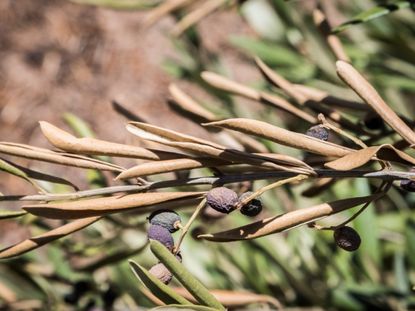

Your shade tree may be in peril. Landscape trees of many types, but most frequently pin oaks, are getting bacterial leaf scorch disease by the droves. It was first noticed in the 1980s and has become a rampant enemy of deciduous trees across the nation. What is bacterial leaf scorch? The disease is caused by a bacterium that interrupts the flow of water in the vascular system of the tree with often dire consequences. Read on to learn more.
What is Bacterial Leaf Scorch?
Shade trees are prized for their regal dimensions and comely leaf displays. Bacterial leaf scorch disease seriously threatens not only these trees’ beauty but also their health. The symptoms may be slow to notice at first, but once the disease takes fire, the tree is often close to death. There is no treatment or bacterial leaf scorch control for this disease, but there are some cultural steps that can be made to ensure a beautiful tree for the last few years of its life. Bacterial leaf scorch is caused by Xylella fastidiosa, a bacterium that is spreading across the eastern and southern United States. The first signs are necrotic leaves with browning and finally leaf drop. Leaf scorch starts at the edges or margins of the leaf and produce browned edges while the center remains green. There is often a yellow band of tissue between the brown edges and green center. The visual symptoms differ from species to species. Pin oaks exhibit no discoloring, but leaf drop does occur. On some oak species, the leaves will brown but will not drop. The only true test is a laboratory test to rule out other diseases and cultural causes of marginal browning.
Bacterial Leaf Scorch Control
There are no chemicals or cultural methods for treating bacterial leaf scorch. Expert recommendations on how to treat bacterial leaf scorch are just panaceas at best. Basically, if you baby your tree, you can get a few good years out of it before it succumbs. Death occurs in 5 to 10 years in most plants. Applying supplemental water, fertilizing in spring and preventing weeds and competitive plants from growing in the root zone will help but cannot cure the plant. Stressed plants seem to die more quickly, so it is advisable to watch for other disease or pest issues and combat them immediately.
How to Treat Bacterial Leaf Scorch
If you wish to try to keep the tree longer or removal is impossible, use good cultural methods to improve the tree’s health. Prune off dead branches and twigs. You may also wish to enlist the aid of an arborist. These professionals can provide an injection containing oxytetracyclen, an antibiotic used in treating leaf scorch. The antibiotic is injected into the root flare at the base of the tree and must be repeated annually to add a few years to the tree. The injection is not a cure but simply a method of treating bacterial leaf scorch and enhancing the tree’s health for a period of time. Sadly, the only real way to effectively combat the disease is to choose resistant tree species and remove infected plants.
Gardening tips, videos, info and more delivered right to your inbox!
Sign up for the Gardening Know How newsletter today and receive a free download of our most popular eBook "How to Grow Delicious Tomatoes."

Bonnie Grant is a professional landscaper with a Certification in Urban Gardening. She has been gardening and writing for 15 years. A former professional chef, she has a passion for edible landscaping.
-
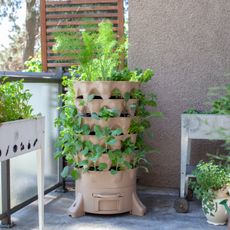 Clever Vertical Vegetable Garden Ideas For Small Spaces – 7 Ways To Save Space
Clever Vertical Vegetable Garden Ideas For Small Spaces – 7 Ways To Save SpaceShort on garden space? Learn some vegetable garden ideas for small spaces that are fun and easy.
By Mary Ellen Ellis
-
 26 Different Types Of Orchids – With Pictures & Information
26 Different Types Of Orchids – With Pictures & InformationDiscover stunning orchid types to grow in your home and garden – from easy beginner varieties to rare and exotic species that are the preserve of experts.
By Melanie Griffiths
-
 Best Trees For Carbon Sequestration And Climate Change
Best Trees For Carbon Sequestration And Climate ChangeLet’s keep planting trees. They are our best bet for capturing carbon and may help with our global warming issues.
By Teo Spengler
-
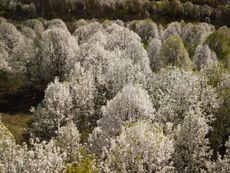 6 Invasive Trees You Should Never Plant In Your Yard
6 Invasive Trees You Should Never Plant In Your YardWhat are some invasive trees you should never plant in your yard? Click here to find out.
By Teo Spengler
-
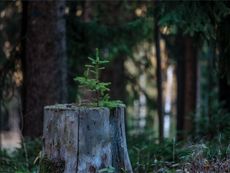 How Close Can You Plant A Tree To A Stump?
How Close Can You Plant A Tree To A Stump?Looking to plant new trees near old stumps or where stumps have been removed? Click here to learn how.
By Teo Spengler
-
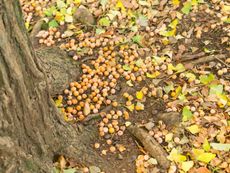 Messiest Trees That Drop Debris Everywhere
Messiest Trees That Drop Debris EverywhereWant to know which trees will create the biggest messes in your home landscape? Click here to find out.
By Amy Grant
-
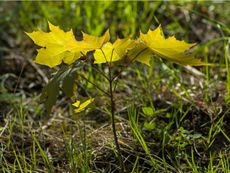 How To Get Rid Of Tree Sprouts In The Yard From Nearby Trees
How To Get Rid Of Tree Sprouts In The Yard From Nearby TreesLearn the simple way to keep pesky tree seedlings in your lawn from becoming saplings.
By Teo Spengler
-
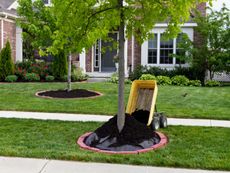 7 Common Tree Care Mistakes That Kill Trees
7 Common Tree Care Mistakes That Kill TreesAre you accidentally killing your tree? It's easier than you think, if you're committing one of these common mistakes. Click here for more.
By Teo Spengler
-
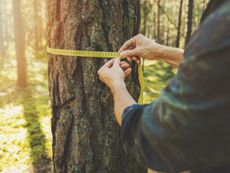 How To Tell How Old A Tree Is
How To Tell How Old A Tree IsEver wondered how to calculate the age of a tree? Click here to learn all about it.
By Teo Spengler
-
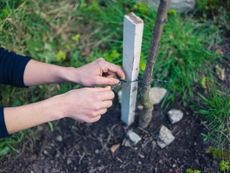 When To Remove Tree Stakes From Saplings
When To Remove Tree Stakes From SaplingsA newly planted tree may grow strong when it’s staked, but don’t forget to remove the stakes when it’s stable.
By Teo Spengler